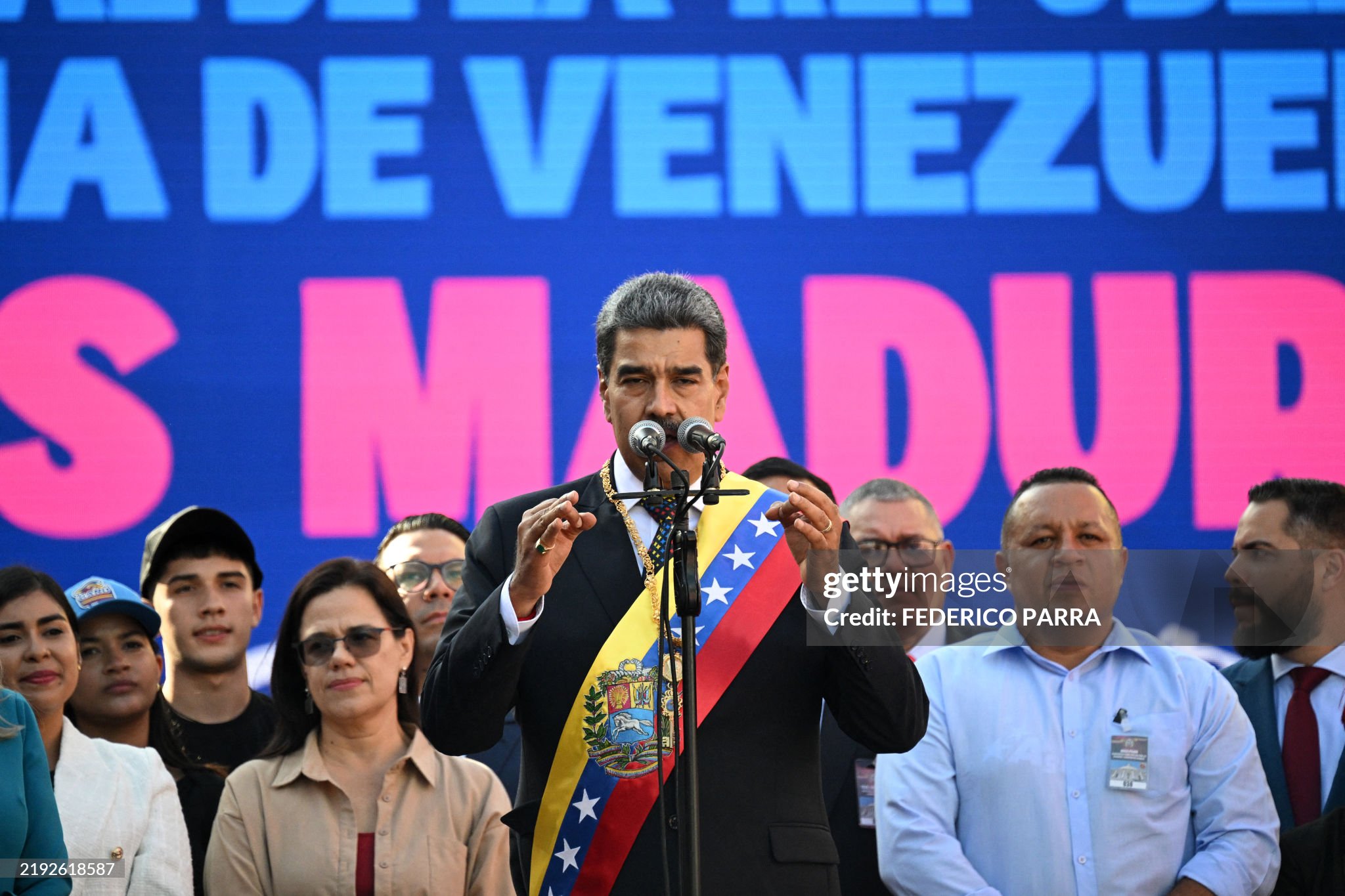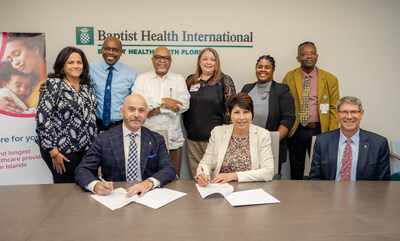Chairman of NOVO farms Glen Ramdhanie talks with Prime Minister Dr Keith Rowley at their Point Lisas business park base ahead of a MOU signing between NOVO and the government of Guyana. Photo by Lincoln Holder
AS another step towards the Caricom goal of reducing the food import bill by 25 per cent by 2025, Novo Farms signed a memorandum of understanding (MOU) with Guyana Office of Investment in Couva on Thursday.
Novo’s chairman, Glen Ramdhani, who signed on the dotted line along with Dr Peter R Ramsaroop, MBA, chief, investment, Office of the President and Government of Guyana, told Newsday the intention is to establish and replicate an agro-processing facility in Guyana. He said they are hoping to break ground within six months.
Novo has infused technology with agriculture to develop an instant food line of products including baigan and tomato choka, dhal, callaloo, pumpkin, sweet potato, cassava and dasheen fries, flour and pasta, among other products.
“The intention is to replicate all that we have here with technology and innovation in Guyana to help build the agri-sector.
“Our vision for Caricom is for Triidad and Tobago to be the processing centre for the region, with Guyana being the food basket, with an element of processing, which would help as a feedstock for our main operations in TT. “
Ramsaroop said discussion with NOVO began a few months ago and they are ready to expand the operations out of Guyana, given that his country has such an abundance of fresh fruit and vegetables and easy access to water.
He said Guyana, which is significantly increasing its agricultural products, has been looking to attract investors in the sector.
“Food security is a big component in our region and we look forward to the partnership.”
Ramsaroop said Novo’s representatives will arrive in Guyana soon to look at the feasibility of what is the best location for them and what they would like to package.
“You know value added is significant. We are importing too much food in the Caribbean every year – over $5 and $6 billion worth of imports.
“The President (of Guyana) and Caricom have a goal of reducing the Caricom bill by 25 per cent by 2025. This is another step in that direction that would match Guyana products into value-added to reduce that bill.”
Guyana’s Agriculture Minister Zulifikar Mustapha, who witnessed the signing along with Trinidad and Tobago’s Agriculture Minister Kazim Hosein and the Prime Minister, echoed Ramsaroop’s sentiments.
“What we are trying to do in the Caribbean, as the chairman of the ministerial task force in Caricom, we are looking to also move away from the primary products that farmers produce and make it more value-added.
“Most times our primary products are exported to North America and other parts of the world, where they are developed, value added – and then we import these products.
“We want to move away from that. If we can add value, reduce the food import bill, because we will produce it, the farmers would have more money, the agro-processors will have a business going on.
“At the same time, we will have product in the Caribbean to satisfy the Caribbean market, rather than import it back from North America and other places it goes to.
See also
“This is one way we are looking in the Caribbean to reduce the food import bill to develop our agri-processing centre while producing more healthy alternatives – such as our sweet potatoes, eddoes, dasheen, cassava – to the white potatoes found in KFC and other chicken houses.
“So we are looking to activate a process where we can have citizens eat healthily and produce locally. This augurs well for us.”
Mustapha, who is in Trinidad with other Caricom leaders to attend the TT Agri Investment Forum, said this is a continuation of what was held earlier this year in Guyana.
“I am hoping other Caribbean and other Caricom countries can follow suit after Trinidad, so we can have this as a regular cycle and woo investors to come to the Caribbean, invest and produce those foods that we want to produce and reduce the food import bill.”
He said Novo is not the only company they are hoping to attract to Guyana while they are here. A greenhouse company from Tobago is already working towards establishing a hydroponics branch.
“This is one of the companies in agro-processing. But we would be working with a number of other companies to ensure that we develop the agro-processing and agricultural sectors.”
Mustapha said such initiatives will act as a catalyst to deepen and strengthen trade relations among Caricom member countries.
Over the past few months, he said, artificial barriers that were there before have slowly been disappearing.





















Discussion about this post